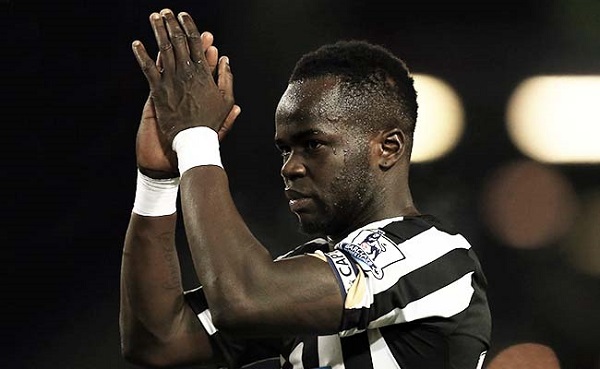
Red flags we can’t afford to ignore
Last Monday, the football world was greeted with shock following the reported death of Ivorian international and former Newcastle United player, Cheick Ismael Tiote after he collapsed while training with his Chinese club, Beijing Enterprises.
Sadness and shock has naturally engulfed the football world as tributes pour in from around the world as the reality of the sudden death of the football star sinks in.
Only last month, the football world bid an emotional farewell to Ugo Ehiogu, a former Aston Villa star and youth coach at Tottenham Hotspur who died after suffering a cardiac arrest at Tottenham's training centre.
That tragic incident brought back unpleasant memories of notable cases involving former Cameroun star Marc-Vivien Foe – who collapsed and died on the field during a 2003 FIFA Confederations Cup clash with Colombia -- and the miraculous survival of Fabrice Muamba Fabrice who suffered a heart attack while playing for Bolton against Spurs in London five years ago.
Deaths of this kind are not new to us, but they are gaining notoriety for snuffing the lives out of very young and active sports stars in recent times, the latest being the passing of 30-year-old Tiote. That many Africans are falling victim to such suspected cardiac-related conditions is enough warning for us in Ghana to sit up and confront the issue and present with all seriousness before it knocks us cold.
From the famous case in 1989 of ex-Nigeria captain, Sam Okwaraji, who collapsed and died during a World Cup qualifier with Angola, there have been numerous cases of Africans collapsing and dying on the field or after being taken to hospital.
Seven years ago, Kessben FC’s Bartholomew Opoku died of suspected cardiac problems after collapsing on the field during a league match with Liberty Professionals. He was immediately rushed to hospital only to die days later.
Typical of us, a lot of noise was made about ensuring footballers undergo strict and thorough medical screening ahead of matches, including the provision of well-trained paramedics on standby during matches to provide immediate first aid to players or spectators. However, not much has been done by the authorities beyond the regular medical training facilitated by FIFA, CAF or the GFA for clubs’ medical officials.
However, the need for greater attention to and investment into modern medical care have become even more relevant today because of the dangers sportsmen and sportswomen subject themselves to on a daily basis to maintain optimum fitness levels for successes on the field.
And in the event of major disasters at sports venues, as happened during the infamous May 9 tragedy 16 years ago, our sportsmen and women and fans are at a higher risk because of the lack of adequate medical facilities and personnel available to respond to the emergency.
In recent years, most deaths resulting from suspected heart-related cases and complications from head injuries have occurred among African footballers, particularly on the continent where little attention is paid to regular and thorough medical screening and emergency response to handle such incidents.
The miraculous escape of Muamba, whose heart stopped for 78 minutes but remarkably survived, was due to the presence at the stadium of a suitable emergency response team and the top medical care he received at the stadium.
The tragedy that befell former Liberty Professional President, Alhaji Sly Tetteh, who collapsed during a football match and died minutes later in hospital, was as a result of the absence of emergency medical response when he collapsed. That is the danger we live with in Ghana and the reason why Tiote’s death should be a wake-up call for attention to be paid to the medical welfare of our players.
